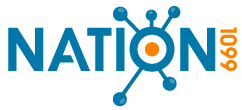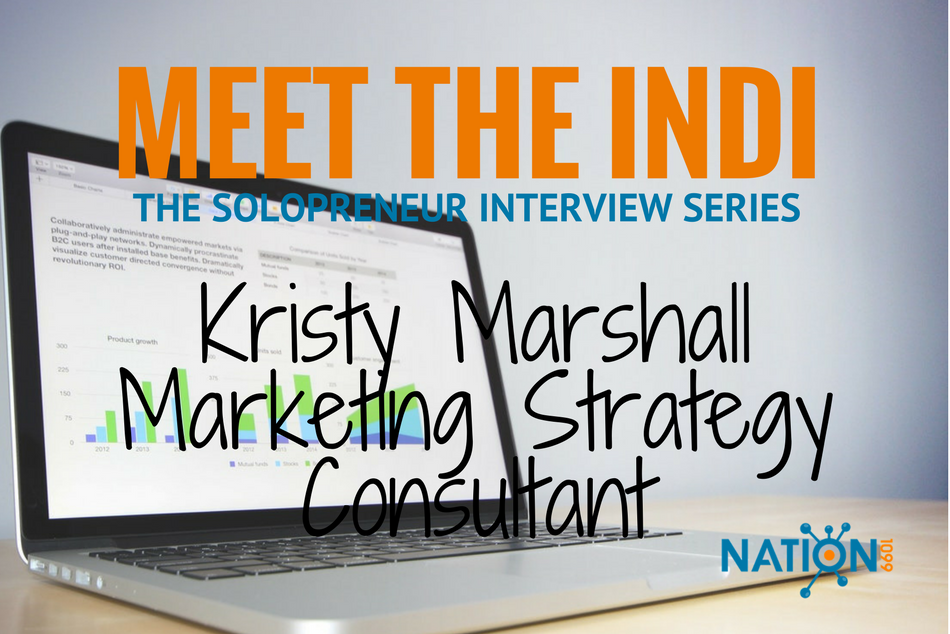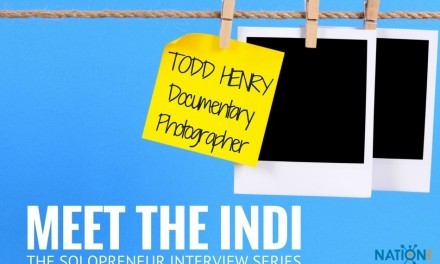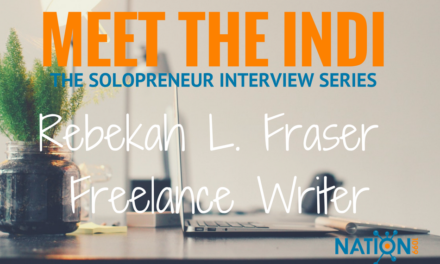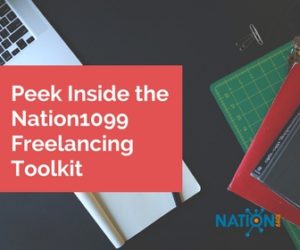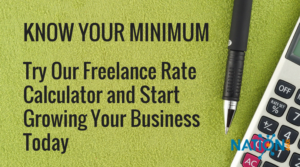Kristy Marshall is a freelance marketing strategist who is a great example of what we found in our roundup of workforce trends that are driving the gig economy. Employers know that work-life balance issues are important, but the employee experience is getting worse instead of better.
Kristy’s trajectory from corporate marketing professional to solopreneur illustrates that problem. Please make sure to read below about the dramatic break she made from traditional work.
After college in Queensland, Australia, Kristy moved to Sydney to start a career in corporate events. Later she moved to a large American education software company, focusing on their marketing campaigns for Australia & New Zealand.
Now her freelance marketing strategist business operates under the brand Island Content.
Tell us what you do as a freelance marketing strategist.
I work with small businesses who are just starting out and who aren’t sure what’s the best approach with marketing. These are local business, for example creatives, ecommerce, beauty, trades and finance.
I help them create a targeted marketing strategy so they only spend time on what’s important. I also offer training on social media and help set them up for success.
For already established businesses, I work with them to identify areas of growth and take their marketing to the next level. I have a network of other marketers I work with to give my clients the full package, so I can help them focus on the business itself.
Related: The Ultimate Guide To Hiring Subcontractors
What are your freelance marketing clients usually looking for? What problem are they trying to solve?
My clients are typically looking for guidance on the best approach for their marketing to actually deliver results. They don’t want to spend months messing around with Instagram or perhaps spending money on advertising to have zero results. They want to get it right the first time.
I’ll consult to them and share knowledge and resources to help them get there, or sometimes do the work for them (social media management), or get it done through my partners.
Related: Freelance Partners: Work Together AND Be Independent
How do you try to set yourself apart from other professionals your clients have to choose from?
I show up online by giving value wherever I can — in relevant business groups and with people I meet at networking events, or even friends. I offer advice and tips on how they can be more effective with their marketing campaigns.
I’ve developed a clearly identified brand with island & tropical themes — a stark contrast again from many marketers who usually have either a very corporate brand, or a “girlboss” vibe with pinks, marble, black and white.
I also started a Facebook group a few months ago. Being a new entrepreneur this year, new to Perth and a service provider, I felt it would be a good way to establish myself and my services. So far it’s been an incredible way to meet people, show what I’m capable of and gain recommendations.
I brand myself as a freelance marketing strategist, rather than niched in social media like many marketers do.
That’s an interesting distinction. Can you tell us about your decision to emphasize marketing strategy over a direct service? Because prospective clients are usually looking for the direct service, aren’t they?
Social media managers are easy to find. But what many local business owners lack is the strategy behind their campaigns. They might hire a social media manager to do their Facebook and Instagram when actually it may not be the most effective approach for them.
Or advertising may be much more effective. I work with them to say straight up, “Start with these channels, and they can go from there.”
It’s similar to business coaching in a way but focused on the marketing aspects. I can help them implement some aspects of it or I have referral partners to do the work.
Related: Web Developer to Web Consultant: How to Reframe Your Value
What methods do you use to grow and to acquire more business?
As a service provider for small-medium businesses and entrepreneurs, I spend a lot of time on social media. Offering advice earns me credibility and nurturing an online presence helps a great deal.
I also organize local networking events and attend a fair few myself, as well as maintaining a Facebook group with consistent valuable content which earns me recommendations, referrals and consistent new business.
I’m still working on ways that I can help more small business owners across a variety of budgets, including a membership program launching soon.
When did working as a freelance professional become a viable business rather than just a side hustle?
For me, it was actually a case of all-or-nothing. I’d been working on a blog as a side-hustle for about 18 months and helping a family member with marketing, but my full-time job involved 70-hour weeks and regular international travel.
So it was near impossible to spend much time on building up a side hustle. I ended up so stressed and sick — basically having a nervous breakdown and in the emergency ward.
When I went back to work not long after, my boss was unsympathetic and pushed more work on me, and I knew it was time to quit. I made the decision in a matter of hours and it just felt right.
So it was a really big leap for you.
Yes, it was a decision to make a physical move to start the business somewhere like Bali where there are lots of digital nomads. Within a week I had booked a flight to Bali and registered my business name!
I spent some time in Bali working on the business, launching and branding, and later moved back to Australia — to the other side of the country though.
Related: Can Freelancers Really Work from Anywhere? A Reality Check.
What observations do you have about how the gig economy is trending?
It’s hard to be subjective as I’m so involved in it myself! But I think there are many people already doing this and a lot who WANT to but are scared to take the leap.
It’s uncertain at times. It can be inconsistent, but I believe working as a freelancer is an incredible way to build your confidence and take your career in the direction YOU want, rather than finding your way through other businesses requirements and workplace politics.
I think more and more people will be moving toward freelance roles in the coming years, as the tech gets easier and internet connections become stronger and more available in other areas.
Don’t miss: Ultimate Guide to Gig Economy Data – A Summary of Every Freelance Study We Can Find
What are you planning to try in the next year to grow your business?
I’m consistently working to grow my audience online and continue to network and meet more people offline.
While it’s super tricky nowadays to gain a solid following on Facebook and Instagram business accounts, Facebook groups are incredibly powerful if done right, as is in-person networking.
Building relationships is essential! I’m also working on building several different offerings to suit businesses at different stages, which includes a membership program, monthly consulting packages, and workshops.
Related: 6 Essential Client Facing Skills You Need For The Gig Economy
What would you advise your younger self about growing a business as a freelance professional?
I’d say that confidence and believing in yourself are key. We are probably the most critical of ourselves. So if you can let that go and show your audience the value you have to give – you’ll do great.
What are some mistakes you made early on?
One mistake I made was assuming that just because I didn’t get an immediate conversion from promotions I did and conversations I had with potential clients, that it meant I was failing. Many people and businesses take a while to make their decision, for various reasons.
I often had people come back to me months later to sign up or who had seen me online or at events but weren’t ready to make contact just yet. Showing up and being visible in the right places, is a long-term game plan but it certainly works.
What are some factors that go into a good business relationship with clients?
Communication is a huge one, whether that is to let them know you’re super busy and there may be a delay, or keeping in touch to hear any feedback on your work, or just let them know where you’re at. Radio silence can make people think the worst!
I also find better relationships when the client allows some creative discretion with the marketing agency. While it’s important to be clear on goals and aims from a project, it’s hard to do your best work within super restrictive guidelines.
Related: Communication Breakdown? Nail Working With A Remote Team
When do client relationships not go well in your experience?
Typically I find client relationships don’t go well when communication isn’t clear from the start. This can be on things like timelines, project expectations and fees — even sometimes a disagreement on how a project should proceed.
It’s super important to be clear on the terms and conditions of your work with a client from the beginning.
Related: The Freelance Contract – How to Write an Effective Statement of Work
What do you hope to learn more about or get better at in the next year?
I’d love to learn more about photography, videography and editing. I love to write, but visual content is a powerful way to capture your audience’s attention, and good quality visuals are even more effective.
